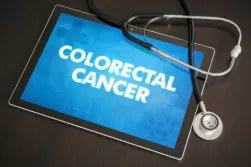NEW HAVEN, CT - BioXcel Therapeutics, Inc. (Nasdaq: BTAI), a biopharmaceutical company utilizing artificial intelligence to develop transformative medicines in neuroscience, today announced an update on the National Institute on Drug Abuse (NIDA)-funded trial evaluating BXCL501 (sublingual dexmedetomidine) as a potential treatment for opioid use disorder (OUD).
BioXcel Therapeutics is supplying BXCL501 for an ongoing 4-arm, 160-patient trial that is enrolling patients who have been predominantly exposed to fentanyl and/or predominantly exposed to fentanyl adulterated or associated with xylazine (FAAX), which has been designated an emerging threat by the White House Office of National Drug Control Policy1. NIDA has requested Columbia University, the trial coordinator, to add a fourth site to target trial completion in 2024. After this time, BioXcel Therapeutics plans to seek FDA feedback on potential registrational paths.*
According to NIDA, xylazine has been linked to an increasing number of overdose deaths nationwide in the evolving drug addiction and overdose crisis. Studies show people exposed to xylazine often knowingly or unknowingly used it in combination with other drugs, particularly illicit fentanyl.2 Recently, the Biden administration requested $46 billion in its fiscal 2024 National Drug Control Budget3 to address the opioid epidemic, while opioid settlements reached between U.S. state and local governments and the 14 major pharmaceutical opioid manufacturers, distributors, and retailers have aggregated between $51 billion and nearly $55 billion.4
“We have long known that the locus coeruleus drives various opioid withdrawal symptoms5 but have lacked access to a sublingual formulation of dexmedetomidine, one of the most potent and selective alpha 2-adrenergic receptor agonists available, as a treatment option,” said Dr. Sandra Comer, Principal Investigator of the trial and Professor of Neurobiology in the Department of Psychiatry at Columbia University. “With BXCL501, we are excited about the potential to treat patients who are physically dependent on illicit and prescription opioids. We believe dexmedetomidine might be particularly helpful in treating withdrawal symptoms in patients who are dependent on fentanyl and/or fentanyl adulterated with xylazine.”
Between June 2020 and January 2021, Columbia University enrolled patients in the Company’s RELEASE trial — a multicenter, randomized, double-blind, placebo-controlled, ascending-dose Phase 1b/2 trial designed to evaluate the safety, pharmacokinetics, tolerability, and efficacy of BXCL501 administered twice daily for seven days — in patients experiencing opioid withdrawal symptoms. In March 2021, BioXcel Therapeutics announced RELEASE topline results. BXCL501 was generally well tolerated, with no severe or serious adverse events reported across all doses evaluated (30 mcg, 60 mcg, 90 mcg, 120 mcg, 180 mcg, and 240 mcg). After further post-hoc analysis, a peer-review article published in the American Journal of Drug and Alcohol Abuse in January 2023 6 reported that the 240 mcg BID dose (480 mcg per day) was well tolerated, demonstrated statistically significant reduction in both Clinical Opiate Withdrawal Scale (COWS) and Subjective Opiate Withdrawal Scale (SOWS), and demonstrated a greater completion of treatment among enrolled patients, 87% of whom had been exposed to fentanyl. In August 2022, the Company announced an NIH NIDA grant to Columbia University to support further studies of BXCL501 for the treatment of OUD.
“While BXCL501 has already demonstrated statistical significance in patients exposed to fentanyl, this current study has a high proportion of patients exposed to FAAX and is comparing 180 mcg and 240 mcg BID doses to both placebo and the standard of care, lofexidine,” said Robert Risinger, M.D., Chief Medical Officer, Neuroscience of BioXcel Therapeutics. “BXCL501 is one of the only potential treatments being studied in this patient population and represents an important potential option to help address the growing OUD crisis.”
The BXCL501 OUD trial is supported by the National Institute on Drug Abuse of the National Institutes of Health (NIH) under award number UG3DA056247.
*In 2017, the U.S. federal government determined that a public health emergency under the Public Health Service Act for the opioid crisis existed, and this determination was recently renewed for 90 days in September 2023, although such public health emergency is independent from any public health emergency determined under the Federal Food, Drug, and Cosmetic Act. A separate determination under the act has not been issued and would be a prerequisite for FDA to declare that circumstances exist justifying emergency use of drugs to address the public health emergency, which must occur before FDA is authorized to issue emergency use authorizations for OUD drugs. The Company may consider advocating for such determination under the Federal Food, Drug and Cosmetic Act, as well as a declaration from the government that drugs targeting OUD are eligible for the emergency use authorization path to market, though they are not currently permitted under the law to be authorized pursuant to this pathway today.



